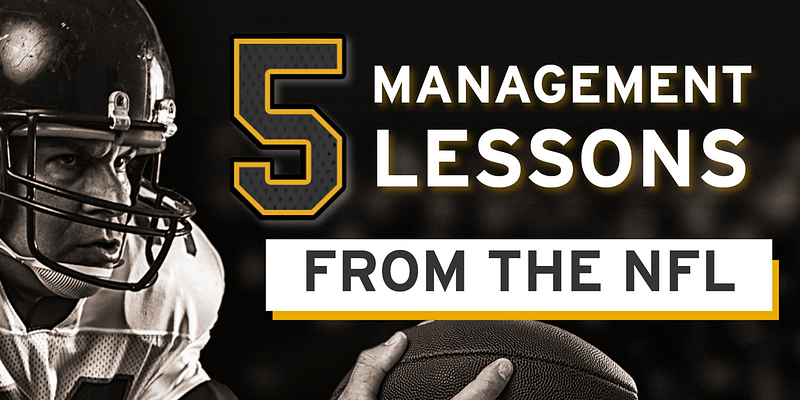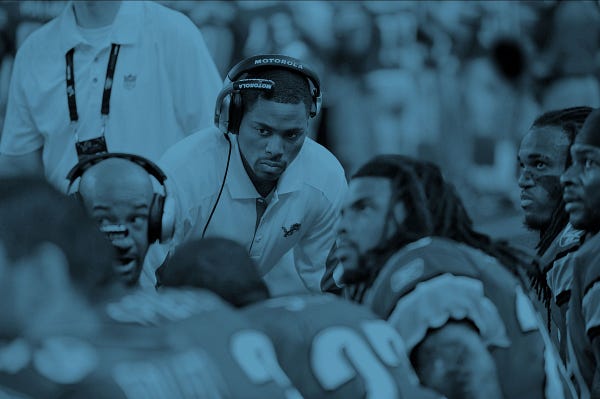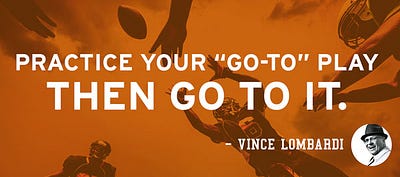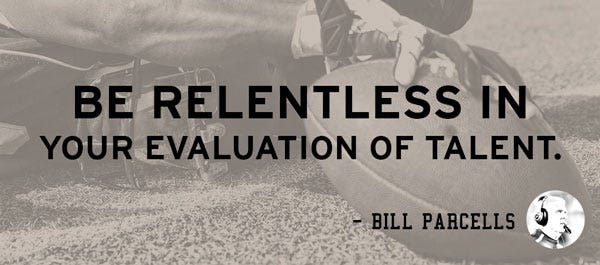5 Management Lessons From the NFL
Daron Roberts, former coach and founding director of UT’s Center for Sports Leadership & Innovation, shares the lessons he’s learned
By Adrienne Dawson


“Well, technically I can’t get fired.”
That’s what Daron K. Roberts told himself in 2007 when Herm Edwards, then head coach of the Kansas City Chiefs, called him into his office. Edwards had just terminated the contracts of half of the coaching staff following a sub-500 season, and Roberts assumed he was next — except that he was an unpaid intern.
He thought, “There’s nothing but upside to this deal. I can’t get fired. Let’s just see how this thing goes.”
Edwards thanked Roberts for his dedication, admitted the season didn’t go as well as they would have liked, then slid a piece of paper across the desk to Roberts with a salary offer.
“Welcome to the NFL,” Edwards told him.
For Roberts, founding director of the Center for Sports Leadership & Innovation (CSLi) at The University of Texas at Austin, the transition from NFL grunt to defensive assistant coach wasn’t an obvious one. He’d earned a Plan II honors degree in government from UT in 2001, followed by graduate degrees in public policy and law from Harvard. He had a job offer from law firm Vinson & Elkins — along with more than $120 thousand in student loan debt — when he volunteered to help run a two-day high school football training camp for fun. Instead of starting work with V&E when he got back, he packed up and headed to Kansas City to try his luck in coaching.
Roberts says it’s the best thing he’s ever done.
Moreover, what he learned from coaching translates into how he works with UT athletes and the CSLi, and many of the NFL’s best lessons apply to managers and CEOs of any organization.





Lesson One:
“Practice your “go-to” play then go to it.” — Vince Lombardi
Avoid mission-creep, says Roberts. “It’s very easy as you start to get good at a certain practice to think, maybe we’re also good at that.” Eventually you’ll be sitting in a board meeting wondering, “What are we here to do, again?”
Lesson Two:
“Script the first 25 plays.” — Bill Walsh
Managers, CEOs, and presidential candidates are always asked, “What will your first 100 days look like?” That question is meant to push leaders to identify their priorities and how they’re going to communicate them to their constituencies or organizations. Roberts says scripting is about knowing why we’re here and what we’re here to do.
In his time as head coach, Shula would have each player sized for a Super Bowl ring during training camp, even though he knew some would be cut before the regular season began. It encouraged the team to play like winners from the start, and it’s an attitude that can benefit any organization, says Roberts.
Lesson Three:
“Act like a champion before you become one.” — Don Shula
In his time as head coach, Shula would have each player sized for a Super Bowl ring during training camp, even though he knew some would be cut before the regular season began. It encouraged the team to play like winners from the start, and it’s an attitude that can benefit any organization, says Roberts.
Lesson Four:
“Be relentless in your evaluation of talent.” — Bill Parcells
To play for Parcells, being good wasn’t enough. A player had to be very good in very specific ways. Parcells created a list of five distinct characteristics he expected to see for every position on the field, and no one made the cut if they didn’t meet all the criteria. In management, look for specific skills and don’t be afraid to cut a weak link.
Lesson Five:
“Calculate the risk then take the calculated risk.”
— Sean Payton
Surprise onside kicks only have about a 20 percent success rate, says Roberts. Payton knew that and still called the play as the Saints took the field after halftime against the Colts in 2010. The lesson, says Roberts, is that sometimes in order to win, you’ll have to take a chance. “If you see that the factors are in your favor and you believe in your personnel, and you have the management to execute it, then it’s to your benefit to take a calculated risk.”
Click below to watch the entire video from Daron Roberts’ presentation as part of the Texas Enterprise Speaker Series on February 26, 2016.
Originally published at www.texasenterprise.utexas.edu on March 7, 2016.
About this Post
Share:


